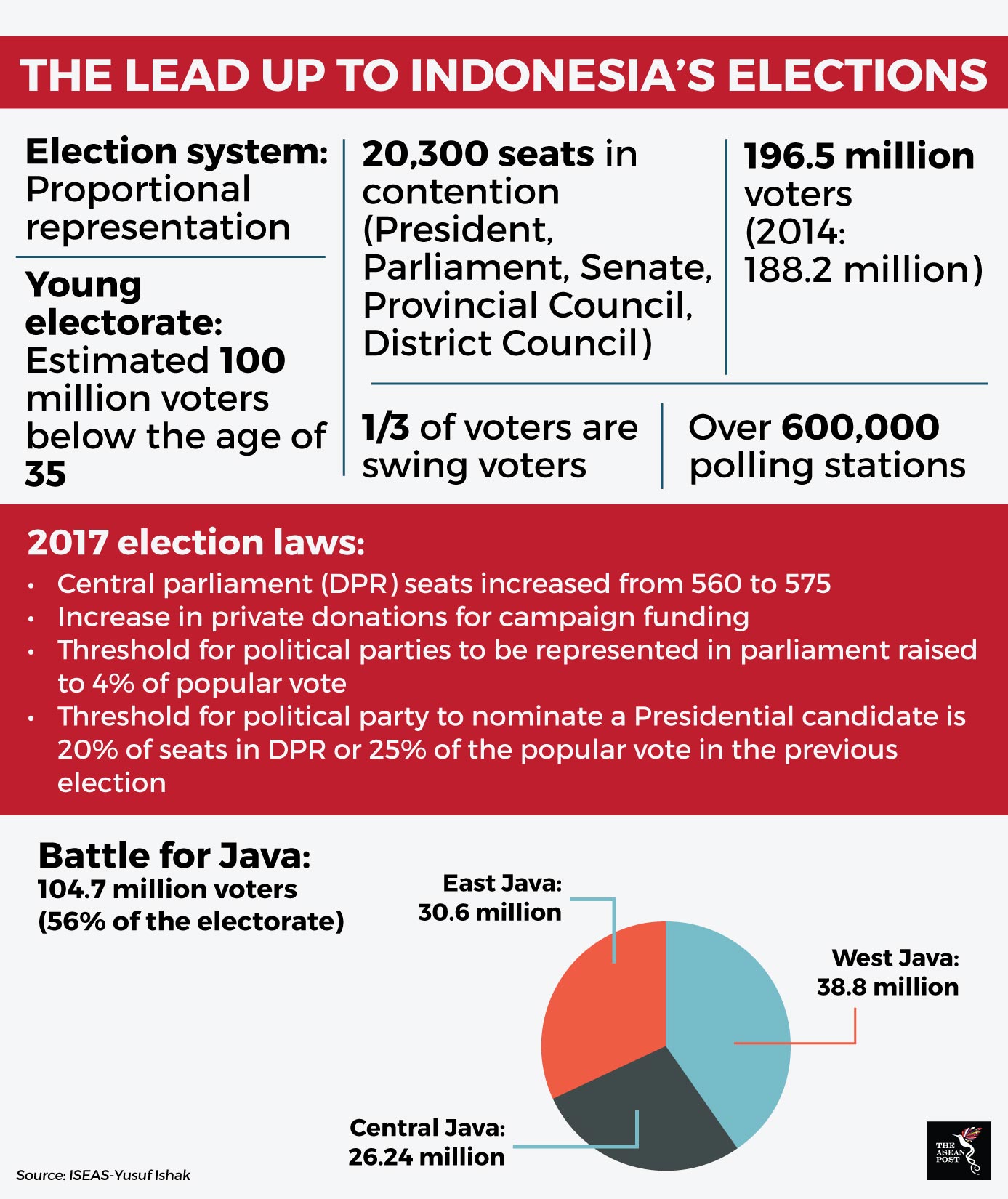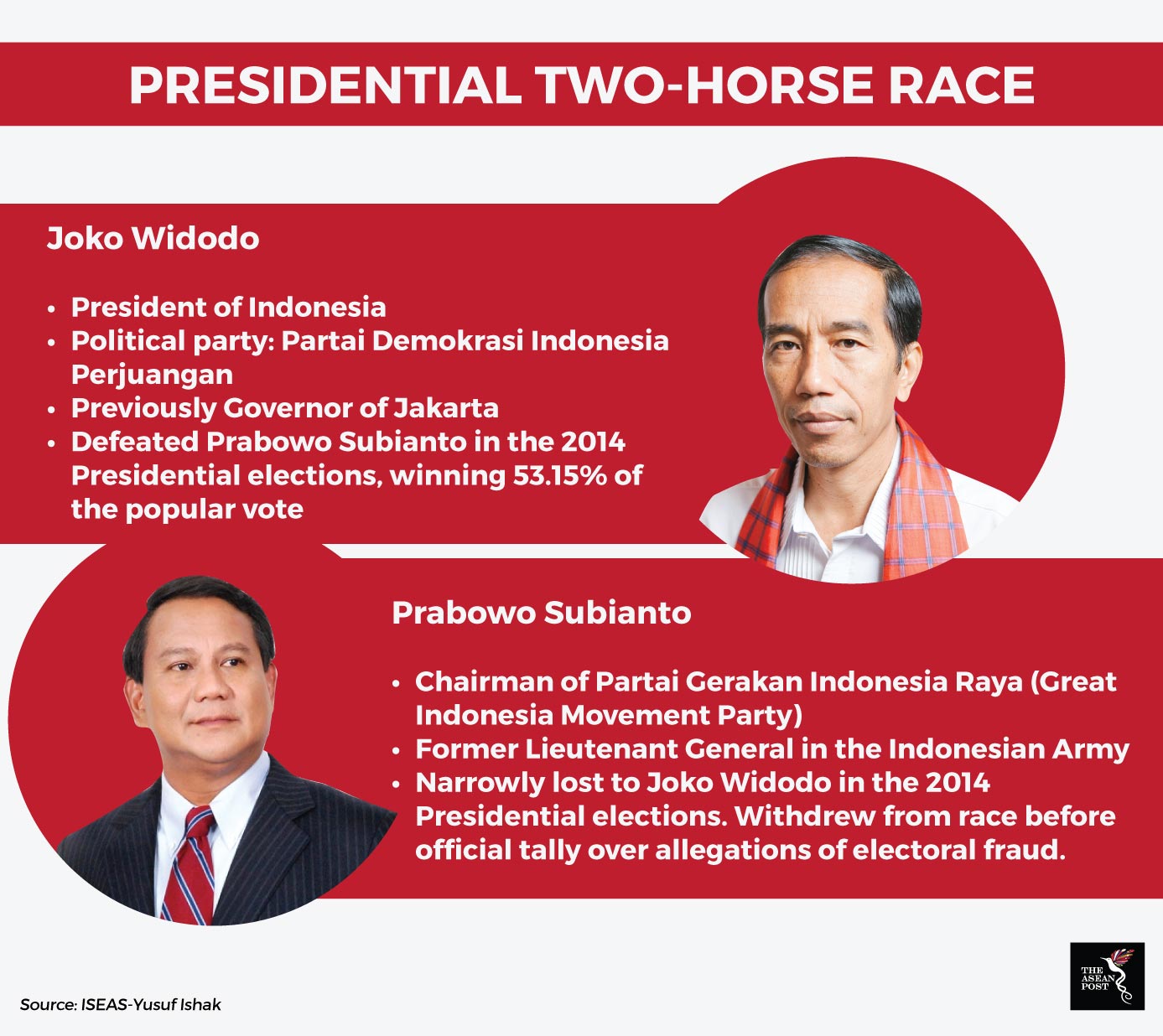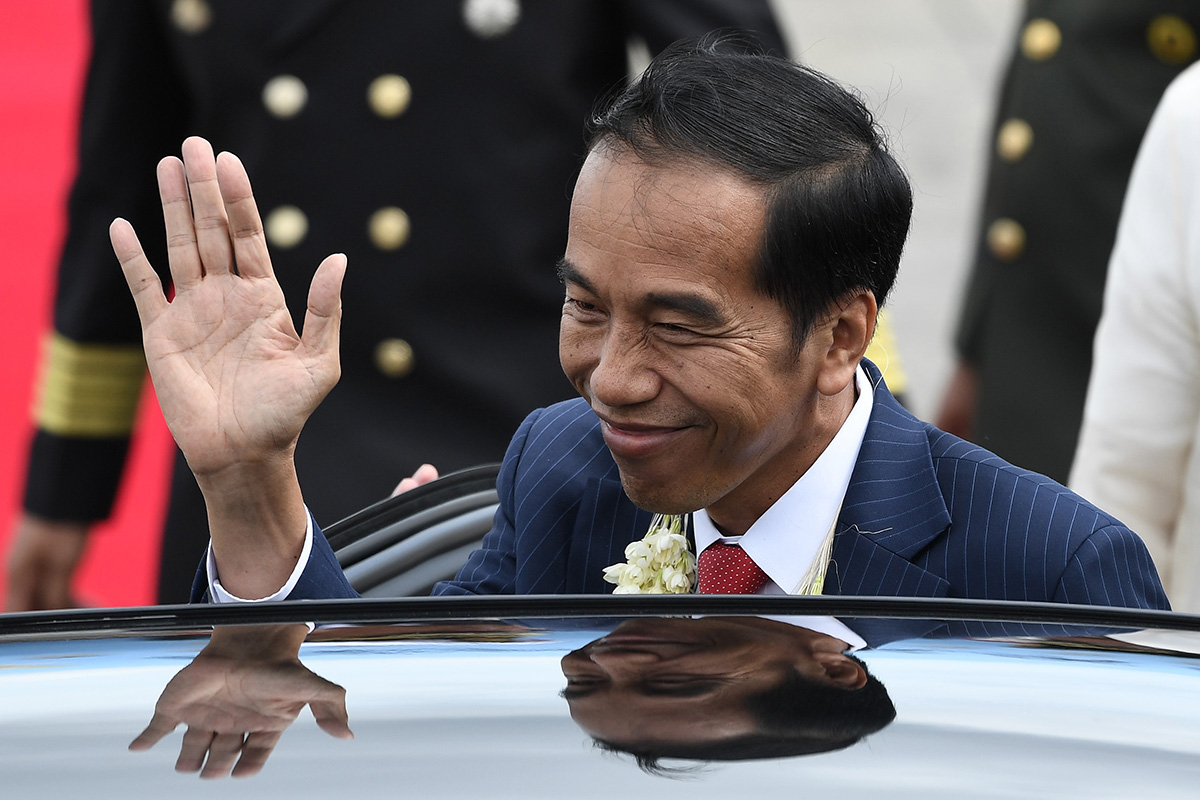Election fever has started to sweep Indonesia. The largest democracy in Southeast Asia heads to the polls twice in the next year and a half. Indonesians will have to vote once this year for their local elections and return to the polling booth in 2019, for their general elections and to elect a President.
“The silly season is truly upon us,” Meidyatama Suryodiningrat, President Director at ANTARA News Indonesia said last month during a forum organised by Singaporean think tank, ISEAS – Yusof Ishak.
“It is a season where every mistake for the next 18 months will be amplified. It is a season where every chatter needs to be verified. It is a season where every goodness is often viewed with suspicion,” he quipped.
Plenty will be at stake as leaders and other potential candidates head out on their carnival of niceties in an attempt to woo voters to their side.
Battleground Java
The island of Java is poised to become a hotbed of election activity as 56 percent of the electorate or more than 104 million voters reside there.

They will head to the polls on the 27th of June to pick their provincial candidates for mayor, governor and regent positions in the largest one-day election in Indonesia. The local elections would serve as the barometer for the two upcoming elections next year.
Issues of contention that have been hogging Indonesian headlines like rising xenophobia, conservative Islam and anti-communist sentiments would likely dominate these elections. As we witnessed with the jailing of Basuki Tjahaja Purnama also known as Ahok over his alleged blasphemous remarks, such issues can be potential game changers.
Nevertheless, Suryodiningrat believes that such issues are only used to gain political mileage or as a political tripwire to attack opposing candidates. The real issues that belie this and the other two elections is economic and structural reforms, infrastructure development as well as corruption.
Cleaning up the act
According to a survey by ISEAS – Yusuf Ishak Institute last October, Indonesians are generally more inclined to vote based on the individual and not along party lines even though some parties have a network of successful branches. Although participation in elections is relatively high, 90 percent of those surveyed said that “…they do not feel close to any party.”
A major reason for this disconnect is corruption. As a measure, 351 governors, regents and mayors have become suspects embroiled in corruption cases over the last 20 years which has directly contributed to the plunging confidence in Indonesia’s political parties.
Moreover, political parties are becoming more and more idol-centric. This has resulted in a lower priority being placed on party engagement and party membership. Instead, the focus has now shifted to personality instead of party.
“All this strongly indicates that Indonesia’s parties – although relatively successful in building nationwide networks of branches – have failed in accommodating public interests and bridging the gap between voters and government. Instead, they have adjusted to a candidate-centred system in elections, where their primary focus in the elections is the most electable candidate(s),” the report stated.
2017 election law
Besides that, the dynamics of these elections will be different owing to the latest election law passed in August last year.
Previously, legislative elections occurred first before eligible parties or coalitions could nominate presidential candidates. The criteria for eligibility is that the party or coalition should have 20% of seats in the representative chamber or 25% of the popular vote.
Under new laws, Presidential and parliamentary elections will be held simultaneously on one day next year. Hence, political parties, would have to field their potential Presidential candidates by August this year although elections aren’t until April 2019. The criteria for eligibility remains; the only difference is that now the percentage of popular vote and seats are based on the last contested elections.

This significantly reduces the nominating power by political party or coalition – especially for those only slightly shy of the threshold. It also means that the next elections would see a repeat of the two-horse race of the previous Presidential election between incumbent Joko Widodo and leader of the opposition Partai Gerakan Indonesia Raya, Prabowo Subianto.
As the countdown to the elections continues, Indonesian politics is headed to a highly charged climax next year. Recalling the slightest of margins that led to the Widodo victory in the previous elections, presidential hopeful, Subianto, will be mindful and inspired to launch a stronger challenge in 2019.
Recommended stories:
